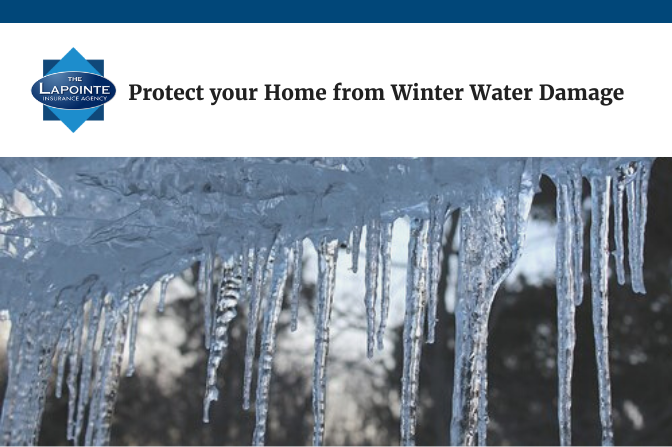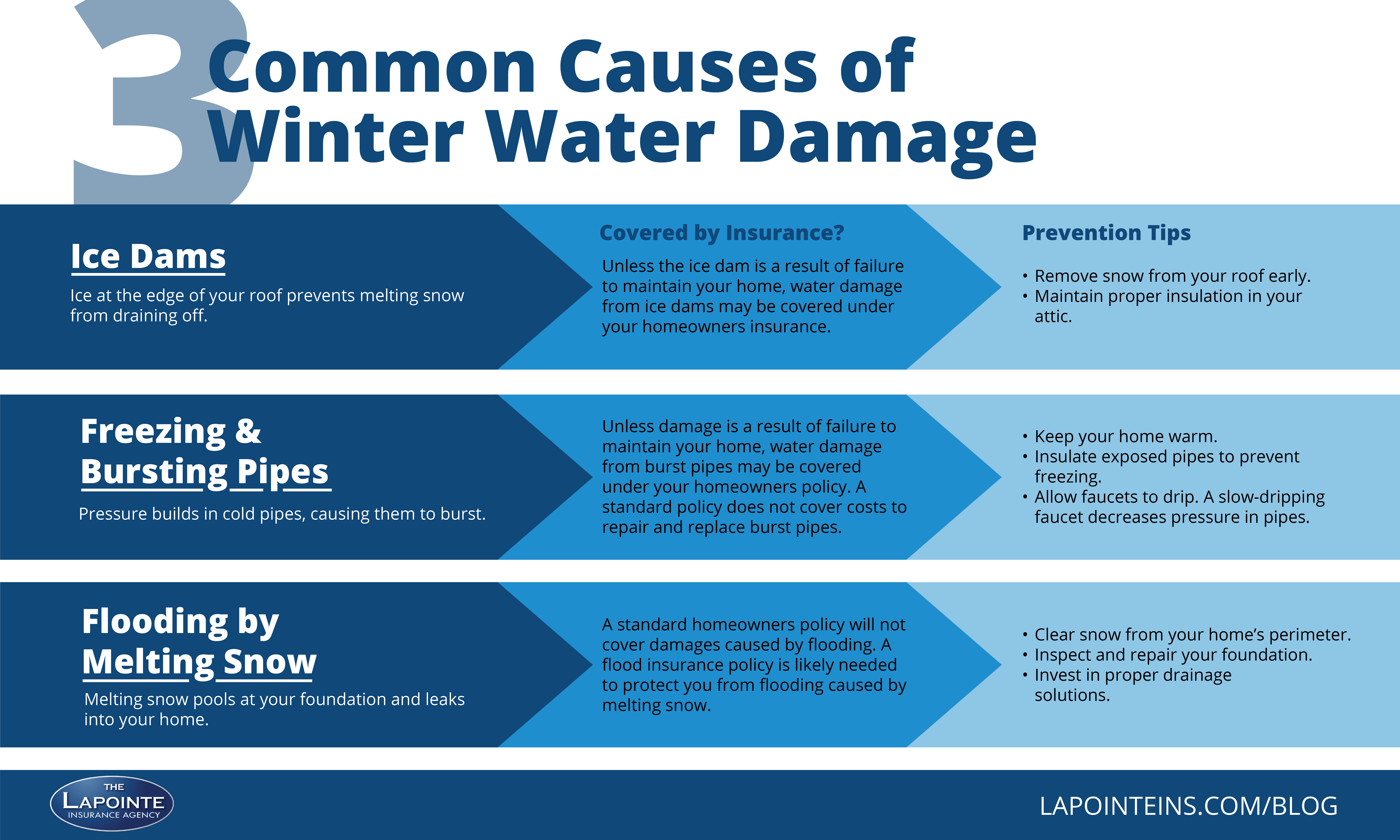Protect Your Home From Winter Water Damage
- Posted by Daniel Simcock
- On February 4, 2021

In this article, we’ll describe some common causes of water damage in the winter, whether your insurance covers these damages, and how to prevent these damages from occurring in the first place.
Key Takeaways
- In the winter your home is vulnerable to water damage, including ice dams, bursting pipes, and flooding due to melting snow.
- Many homeowners insurance policies cover instances of accidental and sudden water damage. Your insurance company may need proof that damage was not a result of negligence or poor maintenance.
- Flooding is not typically covered by your homeowners policy. You may need flood insurance, which can be added as an endorsement to your policy.
- Prevention is your best defense against water damage in winter. Remove snow from roofs and perimeters when possible. As well, ensure that your home has proper ventilation, insulation, and drainage solutions.
Winter can be a challenging season for many homeowners. Brutal winter storms may make you anxious about power outages, heating systems failures, and toppling trees. But even when the storms pass, your homes may still be vulnerable to damage.
Water damage is one of the most common insurance claims filed during the winter. Ice, snow, and shifting temperatures are all elements that put your home at risk.
Learning about these risks can help you protect your home and your investments. In this article, we’ll describe some common causes of water damage in the winter, whether your insurance covers these damages, and how to prevent these damages from occurring in the first place.

Description: Read this infographic to learn about 3 common causes of water damage in the winter.
Common Causes of Water Damage in the Winter
While there are many possible causes for water damage during the winter, here are three of the most common culprits.
Ice Dams
Ice dams are created when ice on the edge of your roof prevents melting snow from draining. As a result, water may leak through and damage your roof, attic, and home.
Burst Pipes
When it’s cold, pressure can build up in your pipes and cause them to freeze. Because of this pipes may burst, causing water damage to your ceilings, walls, furniture, and floors. At its worst, a burst pipe can even cause flooding in your home.
Flooding by Melting Snow
When snow melts, the water tends to move in a path of least resistance. Without proper drainage solutions, this water can pool around your home’s foundation and even seep into your home.
Does my homeowners policy cover me?
There’s not a simple answer when it comes to water damage claims. Many homeowners policies do cover instances of accidental and sudden water damage. But it’s important to speak with your agent to determine whether you are covered by a specific loss.
In instances of flooding, your homeowners policy may not be enough to protect you. In order to be protected for flooding, you may need additional flood insurance, which can be added as an endorsement on your homeowners policy.
It is important to note that your insurance will not cover damages caused by negligence or lack of proper home maintenance. It is expected that policyholders maintain their homes to prevent damage from occurring. Because of this, your insurance company may need proof that damages were accidental, sudden, and not preventable.
How to prevent water damage in the winter
Prevention is always your first and best defense against water damage. When problems are detected and resolved early, you and your home will be safer in the long run.
Our infographic outlines actions you can take to prevent specific damages. In general, here’s some advice that will help you avoid water damage in the winter.
- Remove snow from the roof and perimeter of your home. The earlier you remove the snow, the better you can protect against damage caused by melting snow.
- Ensure that your attic is properly insulated and ventilated. When heat seeps into your attic, problems can occur: mold, water damage, and structural damage.
- Fix and/or invest in proper drainage solutions. Diverting water away from your home is a key factor to preventing water damage.
- Repair cracks and holes in your foundation to prevent water from entering your home.
- Keep your home well-heated during winter months to prevent freezing and bursting pipes.
The winter months may bring unforeseen risks to your home. But we hope that by learning about these risks, you can take the proper steps to protect your home and your investments.
Do you have further questions about water damage coverage? Leave a comment below or contact us at info@lapointeins.com.


